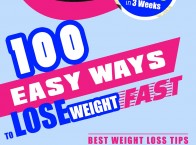21 Tips and Best Ways to Consolidate Debt Fast
Consolidating your debt is the best and the quickest way to reorganize your finances and fix your credit report. Rather than worrying about 3-4 different payments, debt consolidation allows you to combine all financial liabilities and save a lot of money in accrued interest over the years.
If you are also on the path of financial redemption, then use these 21 tips to consolidate your debt quickly and effectively.
1. Credit card consolidation: this is perhaps the single most effective strategy when it comes to consolidating your debt. You can move the balance of your old credit card on the new one and pay off your debt at a zero percent rate of interest for the first few months. Be sure to learn about the grace period to pay as much balance as you can before the interest kicks back in.
2. Home equity loan: if you are paying a very high interest on your student or car loan, then you can tap into your home equity to pay off these debts. Look into options such as cash-out refinancing or exchange a non-deductible interest on currents debts for deductible interest on their current home loan.
3. Take out a personal loan: ask your friends or family members for a loan to pay off your credit card or other loans that may be affecting your credit. However, make sure that you pay back that loan in due time to maintain your credit and relationship. Always go the extra mile in clearly writing down the loan terms and consequences of delayed payments. This will establish the trust of your friends or family members in your ability to pay the money back.
4. Home equity line of credit: taking Home Equity Line of Credit may have higher interest payments but it has fewer limitations when it comes to paying it off in full. It also grants you the flexibility to draw as much you like from the line of credit.
5. Debt consolidation loan: some financial institutions offer personal loans to help you manage your debts. You can consolidate all your financial obligations in a single monthly payment at a lower rate of interest. Choose a legitimate firm to handle your money as their inefficiency can affect your credit score, even when you are making regular payments.
6. Student Loans: before you consolidate your student loan into a debt consolidation plan, make sure you have studied the interest rates carefully. Most student loans have an interest rate cap that cannot exceed a certain percentage. Folding them into another debt can actually make them costlier than they already are. If you must consolidate, consider private student loans.
7. Loan against a collateral: You can also use a vacation/recreation property as a collateral for a secured loan. This, in fact, can be better than taking out a home loan that is like risking your home in case of a default or foreclosure.
8. Retirement plan loan: if you take a loan against your retirement plan, the administrator will calculate a judicious interest rate and since there is no credit check, it will not affect your credit score also. However, if you fail to pay the loan as per agreed terms, you will not only be penalized with a withdrawal fine, but can also result in taxable distribution.
9. Consult a credit counselor: If you are looking for debt consolidation, then it is safe to assume that you are unable to manage your debt vis a vis your monthly income. If you find yourself in this situation, the next best step forward is to take help from a credit counsellor who can help you negotiate better repayment terms with lenders, and help you manage your debt. However, steer clear from predatory credit counselling agencies and only choose low-cost or free services.
10. Start by paying off your highest interest loan first: This one goes without saying. If you are looking to consolidate your debt, always start with the one that has the highest interest rate.
11. Define your financial goals: the best way to approach debt consolidation is to start with a solid plan and have realistic financial goals. Set achievable milestones and strict deadlines. You need to start fixing your expenses before you tackle the debt issue.
12. Be meticulous: when you choose to consolidate your debt, the idea is to pay lower interest and lower monthly payments. However, sometimes the money we save in the process is too tempting, especially if you have been living in a crunch for sometime. Remember to use your money wisely and spend carefully so that you can reduce your debt faster.
13. Use cash more often: The best way to lower your debt is to not have any debt at all. Consider using cash more often rather than swiping things on the card. Studies claim that when you spend your cash, you are more careful about your expenditures.
14. Consider taking out a remortgage: this is the cheapest way to get the lowest interest rate for your debt consolidation. If it is difficult for you to get a second mortgage, you can also consider refinancing your first one. Be sure to check with the prime lender about your eligibility for refinancing the mortgage or taking out a second mortgage before moving on to other alternatives.
15. Take help: if you think your debt is becoming unmanageable, don't hesitate from asking for help. You can ask for loan extension to reduce the monthly payments or take a short break from your repayment schedule to modify your finances.
16. Rework your budget: work on your budget and start by grouping your monthly spending such as groceries, entertainment, housing, transportation etc. Look for areas where you can cut corners. The money that you have freed up in the process can be used to pay off your debt.
17. Build an emergency fund: when you have a rainy day fund, you can use it to pay off your high interest loans that are spiraling out of control. If you don't have an emergency fund right now, consider starting one.
18. Evaluate the feasibility of debt consolidation: before you take out loans or ask for favors from friends, evaluate if debt consolidation is even an option. You must figure out how much monthly payment you will have to make and if you will be able to pay off the amount. A debt calculator will help you save money by making this assessment for you.
19. Debt management: this option involves renegotiating a payment plan with the creditor to make your monthly payments more manageable.
20. Debt settlement: In this option, the lender is willing to forgo some portion of the debt if you are willing to make a lump sum payment for the remainder balance.
21. Bankruptcy: This is the last and the least favorable of all methods. This is the most credit damaging solution that can leave a serious ding on your credit report for 10 years.

 Share on Facebook
Share on Facebook




















